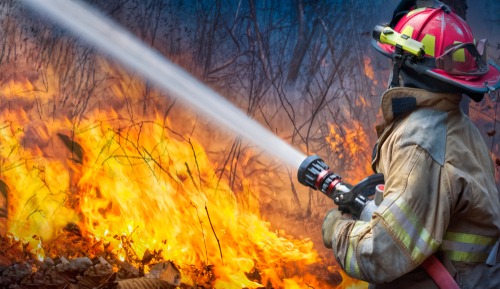
The Emergency Wildfire Fighting Technology Act (H.R. 3389) passed the last of its hurdles in the House this week, advancing out of the chamber on a bipartisan vote and raising the potential that firefighters may soon gain increased assets for wildfire emergencies.
Originally introduced by U.S. Rep. David Valadao (R-CA), the bill seeks to update deployment protocols for Containerized Aerial Fire Fighting Systems (CAFFS). It was driven by the rising number of wildfires in the West, year after year, and eyes CAFFS as a means to overcome the limitations of aerial firefighting systems reliant on tanks and compressed air release mechanisms. CAFFS claim to be able to deploy disposable containers for water or fire retardant via airdrop, expanding aircraft options and allowing around-the-clock work efforts.
“Today, my colleagues and I took an important step towards combatting California’s devastating wildfires that have destroyed homes, businesses, and livelihoods across our state,” Valadao said. “The Emergency Wildfire Fighting Technology Act will ensure our firefighters have every tool available to them to combat these deadly fires and protect our communities.”
H.R. 3389 would require the United States Department of Agriculture (USDA) and Department of the Interior (DOI) to evaluate CAFFS as wildfire mitigation and suppressant measures. Deployment protocol updates would then be authorized for appropriate use of the CAFFS, based on the results. Additionally, a report would need to be submitted to relevant House committees within 90 days of the bill’s enactment.
Others who joined in the introduction of the bill included U.S. Reps. Jim Costa (D-CA), Darrell Issa (R-CA), Mark Amodei (R-NV), John Curtis (R-UT), Doug Lamborn (R-CO) and Western Caucus Chairman Dan Newhouse (R-WA).
“America’s firefighters bravely risk their lives to fight these devastating blazes year after year, and it’s imperative that we equip them with all the necessary tools,” House Natural Resources Committee Chairman Bruce Westerman (R-AR) said. “H.R. 3389 requires the administration to do its job of seeking new, innovative solutions to suppress forest fires.”
While not yet authorized in the U.S., CAFFS has, notably, been used in other countries. The bill now heads to the Senate.

